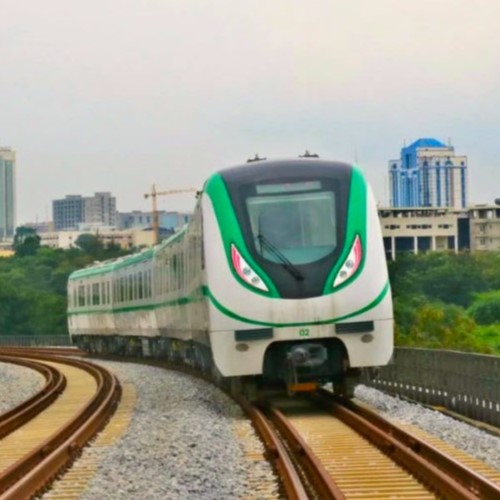
In 2023, Nigeria’s rail passenger traffic experienced a significant decline, dropping by 32.08%. According to data from the National Bureau of Statistics (NBS), the number of passengers using the Nigerian Railway Corporation (NRC) services decreased to 2.41 million from 3.21 million in 2022.
In contrast, cargo transportation by the NRC showed a robust increase, rising by 102.04% to 317,244 tons, up from 157,024 tons the previous year. This growth in cargo movement signals an increasing reliance on the rail system by individuals and businesses across the country.
Both federal and state governments have made substantial investments in Nigeria’s rail services, aiming to upgrade infrastructure and offer world-class services. These improvements are expected to modernize the domestic rail network, bringing it on par with those in more developed nations.
Industry experts believe that the expanded and modernized rail network could greatly benefit Nigeria’s agricultural sector by lowering transportation costs, improving access to markets, and stimulating economic growth in rural areas. More efficient transportation of goods could also reduce post-harvest losses and enhance food security nationwide.
A prime example of state-level investment is Lagos State, which has heavily invested in its rail services. This investment has positively impacted the movement of goods and workers across the state, Nigeria’s most populous and economically significant region.
However, the NRC’s performance in 2023 showed mixed results across various indicators. Revenue generated from passenger services decreased slightly to N4.42 billion, down by 2.64% from the previous year’s N4.54 billion. In contrast, revenue from cargo transportation surged to N1.08 billion, up from N441.74 million in 2022, reflecting the increased demand for goods movement by rail.
The NRC also earned N565.84 million from other income sources, a slight decrease from the previous year’s N607.80 million.
When broken down by quarters, the number of passengers using the rail system in 2023 showed gradual increases each quarter. In Q1, 441,725 passengers were recorded; in Q2, 474,117; in Q3, 594,348; and in Q4, 672,198. This was compared to a higher passenger count in Q1 and Q4 of 2022, which reached 953,099 and 1.34 million, respectively.
Cargo transportation via rail also showed a strong upward trend, particularly in Q4 2023, where the volume of goods transported reached 119,286 tons, a significant jump from 53,136 tons in Q4 2022. Throughout the year, the total volume of cargo transported by rail included 59,966 tons in Q1, 56,029 tons in Q2, and 81,963 tons in Q3.
The performance of Nigeria’s rail system is increasingly critical to the country’s economy, particularly for the transportation of agricultural products. Nigeria is a major producer of crops such as rice, maize, and yam, with agricultural hubs located in states like Benue, Niger, Kaduna, and Kebbi. However, the transportation of these goods remains a challenge due to gaps in the rail network’s connectivity, which affects the seamless movement of products from rural areas to urban markets and ports.
As part of efforts to address these issues, Nigeria’s rail sector is set to expand further. In January 2024, the completion of the Port Harcourt-Aba rail track was announced, signaling progress in the development of the country’s infrastructure. The Port Harcourt-Aba rail project, part of a broader initiative that includes new branch lines, the Bonny Deep Sea Port, and a Railway Industrial Park, was launched in March 2021 under the leadership of former President Muhammadu Buhari.


